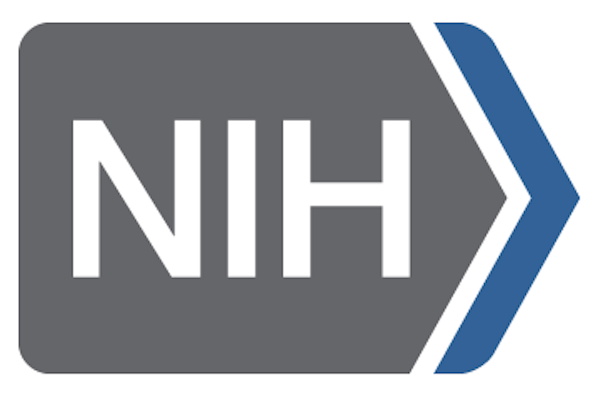Resources for Diversity, Equity and Engagement in Research
January 2025 Update
As of January 29, 2025, some federal websites linked from this page may be redirected or disabled. Please see the OVCR Updates on Federal Research Agency Policy Changes page for UIC updates and federal agency guidance.
header info
UIC’s diversity is the foundation of our intellectual achievement. The University consistently ranks among the most diverse national research universities according to U.S. News & World Report (see “Campus Ethnic Diversity at National Universities”) and is a national leader among urban, public higher education institutions in providing access to underrepresented students. In addition to creating a research environment that thrives on the creativity conferred by diverse perspectives, our diversity makes UIC eligible for a number of funding opportunities requiring minimum enrollment by underrepresented groups.
Department of Education MSI Designation Letter
Funding Opportunities for MSIs
Other Resources
Campus and external resources for data, programming, and networking to promote diversity in research.
UIC Office of Institutional Research
The Office of Institutional Research at UIC provides data, analysis, and reporting to guide university policy and decision-making. Data dashboards include information on student, faculty, and staff diversity that can be helpful for demonstrating UIC’s commitment to diversity in grant proposals.
UIC Office of Diversity
The Office of Diversity provides a wide array of resources to promote diversity and advance and racial equity at UIC.
Alliance of Hispanic Serving Research Universities (HSRU)
UIC is a founding member of the HSRU, a voluntary association of the 21 universities that are both Hispanic-Serving Institutions and in the top 5% of universities in the country for research. Launched in 2022, the HSRU has two primary goals: Double the number of Hispanic doctoral students enrolled at our universities and increase by 20% the Hispanic professoriate in our universities by 2030.
National Academies Committee on Women in Science, Engineering, and Medicine
The Committee on Women in Science, Engineering and Medicine (CWSEM) collects and disseminates data and information on the education and employment of women scientists, engineers, and health care professionals, and ways to increase the participation and advancement of women in all fields of science, engineering, and medicine.
Chicago Women in STEM Initiative
The mission of the Chicago Women in STEM Initiative is to build an inclusive self-sustaining community composed of Chicago-area students, postdoctoral scholars, and professionals to support gender equity, diversity, and the success of local women in STEM.
Funded Projects Related to UIC's Status as a Minority Serving Institution (MSI)
| Project Title | Sponsor | Funding Amount | Summary |
|---|---|---|---|
| A Multidisciplinary Research Center of Excellence - EXtreme EnErgy Density (EXEED) | US Army | $1,350,000 | The University of Illinois Chicago has been awarded a $2.25 million, five-year grant to establish a Research Center of Excellence by the U.S. Army through a program that aims to expand and diversify its research base through partnerships with historically Black colleges and universities and minority-serving institutions, or HBCU/MI. |
| Institutional Transformation Through Large-Scale Implementation of Departmental Action Teams | National Science Foundation (NSF) | $2,624,177 | This project aims to establish an institution-wide imperative to improve classroom climate, instructional quality, and degree pathways in all Science, Technology, Engineering, and Mathematics departments at the University of Illinois-Chicago, a broad-access Hispanic-Serving Institution. |
| Monarchs and Milkweeds: A Partnership to Develop a Integrated and Culturally Relevant Science Curriculum | National Science Foundation (NSF) | $2,490,096 | The Monarchs and Milkweeds Project seeks to develop a vertically integrated curriculum that spans from high school to lower- and upper-level college courses. The curriculum will focus on the biology, ecology, and chemistry of monarch butterflies and their principal food source, milkweed plants. |
| University of Illinois at Chicago's Pipeline for AANAPI Student Success (UIC PASS) | US Department of Education | $1,482,648 | This project will provide supplemental tutoring, academically integrated mentorship, and internships to boost academic and social support services for Asian American and Pacific Islander undergraduate students. |
| University of Illinois at Chicago's AANAPI Citizens who are Culturally Responsive, Engaged, Dynamic, Informed, and Thoughtful (ACCREDIT) Project | US Department of Education | $1,471,584 | The initiative supports the recruitment, retention, and graduation of Asian American and Pacific Islander students at UIC by providing culturally responsive academic support, life-skills education, and community-engaged experiential learning, |
| Increasing Latin@s Access to Networks for Advancement in Science | US Department of Education | $5,445,211 | L@s GANAS provides recruitment and retention of Latinx students in STEM fields through financial support, mentoring, professional development and cultural enrichment programming. |
MSI
Minority-Serving Institution Status
UIC is both a Hispanic Serving Institution (HSI) and an Asian American Native American Pacific Islander Serving Institution (AANAPISI) based on the demographics of UIC’s full time undergraduate enrollment. The Office of Institutional Research curates interactive dashboards with data on students, faculty, and staff demographics that are available to the UIC community.
The terms “Minority Institution” and “Minority Serving Institution” are commonly used to describe universities that have significant participation by underrepresented groups. However, they are two different legal terms. UIC is a “Minority Serving Institution” but our enrollment does not meet the criteria for a “Minority Institution.” Under 20 U.S. Code § 1067k, a Minority Institution is an institution of higher education (IHE) whose enrollment of a single minority or a combination of minorities exceeds 50 percent of the total enrollment. This information shall be verified from the data on enrollments in the higher education general information survey (HEGIS) furnished by the institution to the Office for Civil Rights, Department of Education. Most other federal agencies rely on the Department of Education definitions. The term “minority” means American Indian, Alaskan Native, Black (not of Hispanic origin), Hispanic (including persons of Mexican, Puerto Rican, Cuban, and Central or South American origin), Pacific Islander or other ethnic group underrepresented in science and engineering.
Eligibility for MSI Grants
Eligibility requirements for MSI awards differ among sponsors and programs. The National Science Foundation (NSF) has a helpful guide on points to consider as you evaluate funding opportunities that are specific to MSIs and the Department of Education has a matrix indicating eligibility for a number of programs.
We encourage you to contact our office for guidance before you prepare a proposal for any project with requirements related to minority participation, and we always recommend you contact your program officer to confirm eligibility for any opportunity that has unique requirements.
The Department of Education has confirmed UIC’s eligibility for grants that fall under Title III and Title V programs of the Higher Education Act (HEA) of 1965, as amended by the Higher Education Opportunity Act of 2008. Title III “helps eligible IHEs to become self-sufficient and expand their capacity to serve low-income students by providing funds to improve and strengthen the academic quality, institutional management, and fiscal stability of eligible institutions.” Title V, the Developing Hispanic-Serving Institutions (DHSI) Program, “provides grants to assist HSIs to expand educational opportunities for, and improve the attainment of, Hispanic students.” UIC is also eligible for a waiver of the non-Federal share matching requirements under the Federal Work Study Program (FWS), the Federal Supplemental Educational Opportunity Grant Program (FSEOG), and the TRIO Student Support Services Program under Title IV of the HEA, as well as the Undergraduate International Studies and Foreign Language Program authorized by Title VI of the HEA. The Department of Education letter documenting UIC’s eligibility for Title III and Title V for the current fiscal year can be found here.






